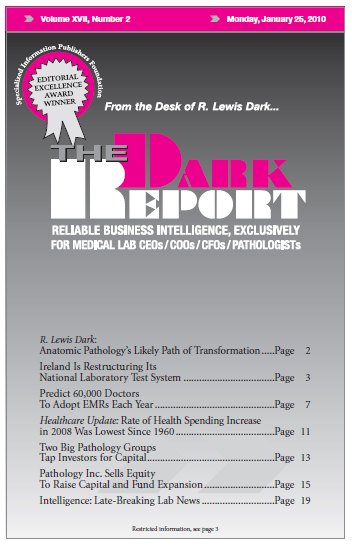CEO SUMMARY: In looking how to propel its business to the next level, the partners at Pathology, Inc., opted not to sell their pathology group practice. Instead, they chose to raise capital by selling equity in their company to a group of investors. In this exclusive interview, executives from Pathology, Inc., share their business strategy. …
Pathology, Inc. Sells Equity to Raise Capital Read More »
To access this post, you must purchase The Dark Report.


